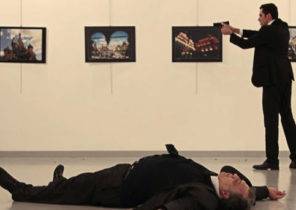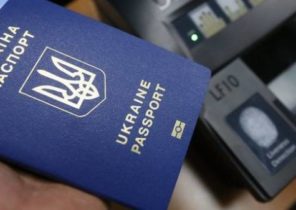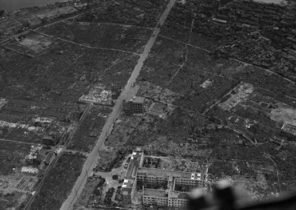Muhammad Abu al-Zahar (Abu Mohammad al-Saar), the auto mechanic from the garage in the Syrian city of HOMS were detained by representatives of the ruling regime and tortured in an underground prison (name changed at his request). Thousands of other protesters were destined to the same fate. In the day of his release he took up arms to revenge to protect the city and to ensure the advent of a new era, an era of political freedom. It was in April 2012, almost exactly one year after the start of the uprising, and then there was still hope for a positive outcome.
Today, eight years later, he’s a mercenary, he is involved in a foreign war — in Libya, located about 2 thousand miles from his homeland. And when he is on the battlefield in Libya looks towards the enemy positions, the likelihood is high that he can see where the other Syrians.
Saar and other Syrian rebels now receive money from Turkey and fighting on the side of the forces of the Government of national unity, which, along with other candidates, fighting for power under long-term conflict in Libya. He began with the uprising against Muammar Gaddafi in 2011, and today is a struggle for lucrative oil deals and influence. The government of national unity was recognized by the UN, and, in addition, it supports the organization “Muslim brotherhood”, a transnational group that preaches political Islam and supported by such powerful allies as Turkish President Recep Tayyip Erdogan. Existing relationships with “Brothers-Moslems” became the basis for the support by Turkey of a provisional government in Libya and ever-increasing military assistance to Ankara recently contributed to the change of the situation in the war in favor of the forces of the government of national unity.
However, the Saar is only two hands in a larger battle. This 38-year-old father of four children from rebel turned mercenary, and it happened over a long period of hardship and deprivation caused by the endless war in Syria. “My wife and four children live in a tent. I have no money to buy cement blocks and for them to build housing, he said in a conversation on the phone with a reporter of the magazine “foreign policy”. — When my wife gave birth, I had no money even to buy diapers and milk for the baby.”
In 2014, the city of HOMS was captured by the forces of the regime of Bashar al-Assad, and the Saar with his family was forced to move to the city of Aleppo, who was at that time under rebel control. There he joined the “Division of Sultan Murad”, a rebel group consisting mostly of Turkomans who are trained and financed by Turkey. However, Turkey’s intention was not solely altruistically, she not only maintained the rebels, but offered them to war for its own interests.
Saar — Arab, not Turkomans, however, he decided to join this group, so as to earn a living. In 2018 he was among those rebels who were hired by Turkey to expel members of the Kurdish militia and hundreds of thousands of civilians from Afrin Gorda, located in Northern Syria (Turkey accuses Kurdish militia in the organization of terrorist attacks inside Turkey and in inciting the separation of the territory). In ‘ afrīn the Saar received 450 Turkish liras, pathetic pay, corresponding to about 46 dollars per month. However, Libya — more than profitable business. “For four months in Libya I got more money than all the years of fighting in Syria. I earn 2 thousand dollars a month,” he said, and his voice sounded happy about the enormous jump in income.
And in his native Syria another former rebels, faced with the same hardship, offer to take part in the same war, but on the side of the commander Khalifa the Haftarot, the main opponent of a national unity Government, supported by Russia, and the United Arab Emirates and Egypt.
In addition to trends in Libya the number of people mediated their henchmen, Turkey also transported to this country the most advanced drones and air defense systems. In March of this year, Russia turned to his Syrian ally Assad, and asked for reinforcements. Moscow was able to obtain from Assad’s support for a more preferable military ruler and began to recruit people willing to participate in a conflict in another country in exchange for cash.
According to Syrian rebels, led by the campaign at the call of Colonel Alexander Zorin, which in 2016 was the representative of the Russian Ministry of defense located in Geneva the working group on the cessation of hostilities in Syria. Zorin is better known in Syria as “the godfather” of transactions for reconciliation between the Syrian regime and rebels in ghouta, in Daraa and Quneitra. According to the data obtained from Russian sources, in early April Zorin visited southern Syria — the region is especially fertile soil for the Russian recruitment and the reason for this is not only extreme poverty, but the lack of support from any other regional or global powers. Many of the insurgents in the region in July 2018 sided with Assad, and it happened after the United States denied their continuing support.
In collaboration with the staff of the intelligence of the Assad regime Zorin, apparently, began negotiations with a number of rebel groups on sending them to Libya to participate in armed conflict. Abu Tarek (Abu Tareq, his real name has been changed in the article), the leader of one of the rebel groups who fought against the “Islamic state” (banned in Russia organization — approx. edition of the new York times) in the South of Syria, told the correspondent of the magazine “foreign policy” that he met with Zorin and agreed to go to Libya together with his soldiers. “We met with him, and he told us that we were going to Libya with the security of the company (Wagner),’ said Tarek, who is currently in Syria. — He has made a generous offer of 5 thousand dollars a month for the commander and one thousand dollars to each soldier. Of course, we agreed because of the financial situation in our region is terrible.” According to Tarek, the rebels tried to lure not only money, but also with a promise of Amnesty for those who evaded the draft, as well as for those on whom the Assad regime has collected relevant materials for subsequent use. Abu Jafar Martinek (Abu Jafer Mamtineh), the leader of another group in the southern part of Syria, is also believed to made promises. In mid-April, he has collected more than a hundred young people for training in Russian at the training base in HOMS.
Ahmad Khatib (Khatib Ahmad) who knows from the inside the situation in the ranks of the rebels in the South of the country, confirmed the words of Tarek (he also asked not to give his real name, for reasons of safety). “Colonel Zorin said that former rebels will be able to expand their influence and increase the number of their fighters, if you go to Libya at least a thousand people,” said Khatib.
But soon Tarek, Martinek and people discovered that they had been misled. They were lured with promises that they will just guard the oil equipment on the Haftarot-controlled territory in Eastern Libya, however, after arriving to training camp in HOMS, they realized that they will have to fight for the Haftarot and to die for him. They also learned that the monthly payment will be much lower, only about $ 200. “The other Russian General on the base in HOMS, his name I don’t know, standing before us read out the terms of the contract. It didn’t match what was promised Zorin. We refused the contract and asked to send us back home,” Tarek said from the province of Quneitra.
Russia, as a rule, was more difficult than Turkey to establish a puppet Syrian forces in Libya. However, according to the Libyan analysts, the Syrians are already in Eastern Libya and strengthen the position of the Haftarot. ANAS El Gomati (Anas El Gomati), founder and Director of the first research center in the field of public policy in the Libyan city of Tripoli, believes that Russian mercenaries in the “Wagner Group,” lead the offensive in the ongoing for a year the Haftarah attempts to capture Tripoli, while the Syrians were sent to support a military leader in Eastern Libya. “The Haftarot and the Assad regime has strong ties and loyal to the Syrian regime people in the past few months sent to Libya — said El Gomati. — The haftarot increasingly relies on foreign powers to support its military campaign. Mercenaries have a certain price, they don’t know the terrain and have difficulty moving forward in the urban environment”.
Haftar announced the ceasefire for the period of Ramadan, but this happened after his Libyan national army has lost control over several cities, and now they are the representatives of the national consensus Government. Apparently, the Haftarah is trying to buy time, hoping this time to concentrate their ground forces and to convince Russia that it is necessary to further strengthen the opposition of the Turkish armed forces. However, if Moscow decides to strengthen the intervention in Libya, it and Ankara can rely on a large number of desperate Syrians, from which it will be possible to recruit mercenaries.
Meanwhile, the militants “by proxy”, which are already in Libya, just hope to return home alive. “I understand that there risk their lives, and many of our there captured, said Saar. — If I really can come back alive, you’ll open your store.”
Have Anchal Vohra — freelance correspondent of the TV channel “al Jazeera” and a regular contributor to the magazine foreign policy, she lives and works in Beirut.







